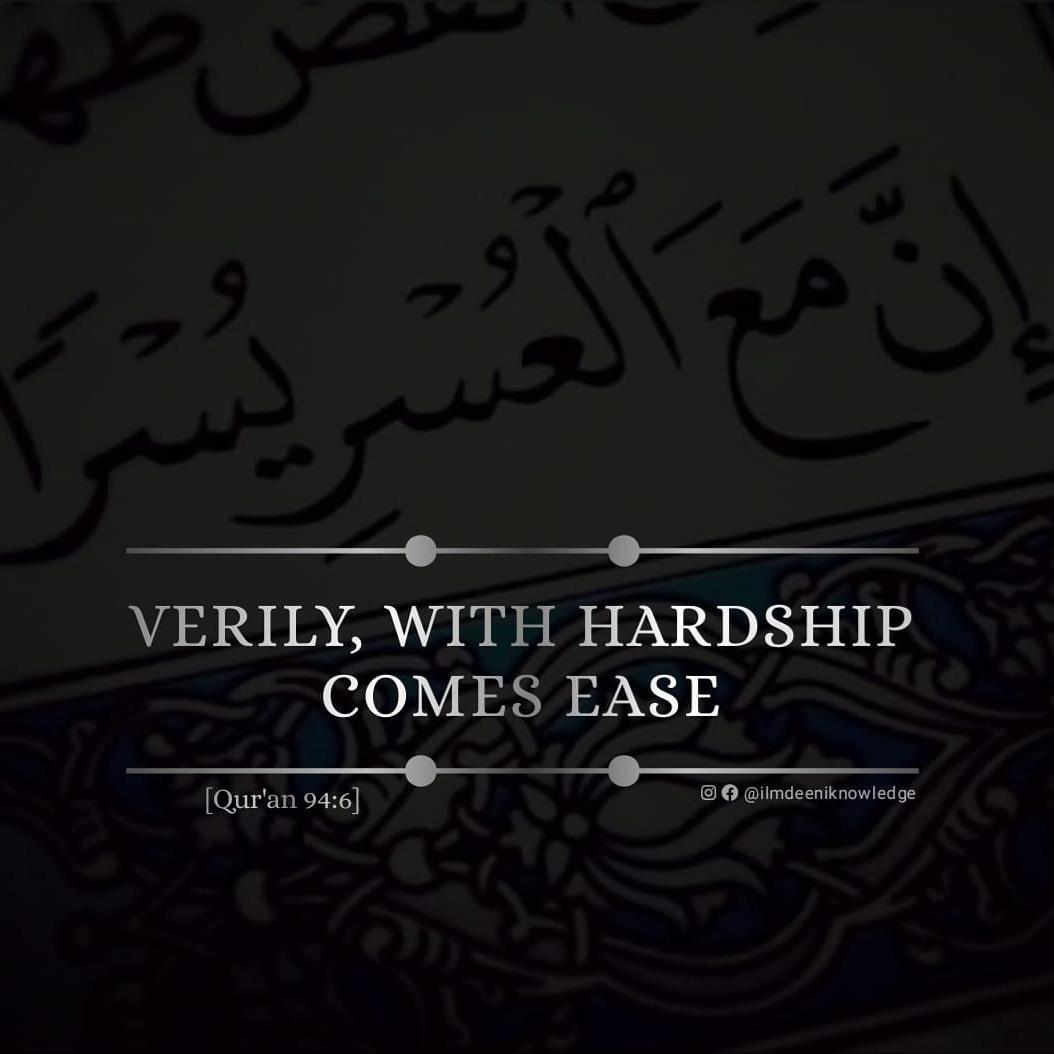In the Name of Allah, the Most Gracious, the Most Merciful.
As-salāmu ‘alaykum wa-rahmatullāhi wa-barakātuh.
Respected brother,
We take note of your concern and despondency. The issue is not as you have understood it to be.
Whilst Sharῑ’ah has specified guidelines to declare one as an apostate (kāfir), Sharῑ’ah has also advised us to exercise extreme precaution in declaring a Muslim an apostate (kāfir).
Consider the following:
1- Allah the Almighty says:
وَلَا تَقُوْلُوْا لِمَنْ أَلْقَى إِلَيْكُمُ السَّلَامَ لَسْتَ مُؤْمِنًا
Translation:
“And do not say to the one who extends greetings to you, ‘you are not a Believer’”
[Surah Nisā, verse 94]
2- In the narration of Ṣaḥῑḥ Muslim, Ḥaḍrat ‘Abdullah ibn ‘Umar Radiyallahu Anhu narrates that the Prophet Ṣallallāhu ‘Alayhi Wasallam said:
إِذَا كَفَّرَ الرَّجُلُ أَخَاهُ فَقَدْ بَاءَ بِهَا أَحَدُهُمَا
Translation:
“When a man labels his [Muslim] brother an apostate, then it (apostasy) returns to one of them”
[Ṣaḥῑḥ Muslim, v.2, pg.18, Dār Al Qalam]
3- In another narration of Ṣaḥῑḥ Muslim, the narration is found with the words:
أَيُّمَا امْرِئٍ قَالَ لِأَخِيهِ يَا كَافِرُ فَقَدْ بَاءَ بِهَا أَحَدُهُمَا إِنْ كَانَ كَمَا قَالَ وَإِلَّا رَجَعَتْ عَلَيْهِ
Translation:
“Whichever man says to his [Muslim] brother, ‘Oh disbeliever’, then it returns to one of them if he (the Muslim brother) is like how he (the speaker) has said, otherwise, it (his statement) reverts to him (the speaker)”
[Ṣaḥῑḥ Muslim, v.2, pg.18, Dār Al Qalam]
This attitude of maintaining extreme precaution when labelling a Muslim an apostate (kāfir) was the attitude of all of our pious predecessors – this includes the scholars of the four schools of Fiqh as well as those who did not ascribe themselves to a school of Fiqh. This was also the attitude of our elders from the ‘Ulamā of Deoband.
Consider the following:
1- Allāmah Ibn Daqῑq Al ‘Id Al Shafi’ῑ’ Raḥimahullah (d.702 AH) writes in the commentary of the aforementioned Ḥadῑth:
وَهَذَا وَعِيْدٌ عَظِيْمٌ لِمَنْ أَكْفَرَ أَحَدًا مِّنَ الْمُسْلِمِيْنَ وَلَيْسَ كَذَلِكَ
Translation:
“This is a great warning to anyone who labels anyone from amongst the Muslim an apostate while he is [not an apostate]”
[Iḥkām Al Aḥkām Sharḥ ‘Umdah Al Aḥkām, v.2, pg. 226, Maṭba’ah Al Sunnah Al Muḥammadiyyah]
2- Ḥāfiz Ibn ‘Abdil Barr Al Mālikῑ Raḥimahullah (d.463 AH) said:
فَالْقُرْآنُ وَالسُّنَّةُ يَنْهَيَانِ عَنْ تَفْسِيْقِ الْمُسْلِمِ وَتَكْفِيْرِهِ بِبَيَانٍ لَا إِشْكَالَ فِيْهِ
Translation:
“The Qur’ān and the Sunnah discourage – in an elaboration that does not leave any doubts – a Muslim from labelling a [fellow] Muslim a ‘transgressor’ or ‘apostate’”
[Al Tamhῑd Li Mā Fil Muwattā Minal Ma’ānῑ Wal Asānῑd, v.17, pg.315, Al Fārūq Al Ḥadῑthiyyah]
3- Qāḍῑ ‘Iyāḍ Al Mālikῑ Raḥimahullah (d.544 AH) has recorded the statement of the great Shāfi’ῑ’ jurist, Imām Al Ḥaramayn Al Juwaynῑ Al Shāfi’ῑ’ Raḥimahullah (d.478 AH) who said:
إِدْخَالُ كَافِرٍ فِي الْمِلَّةِ أَوْ إِخْرَاجُ مُسْلِمٍ عَنْهَا عَظِيْمٌ فِي الدِّيْنِ
Translation:
“To consider a disbeliever within the fold of Islām or to take a Muslim out of it (the fold of Islām) is a severe act in religion”
[Al Shifā, pg. 473, Dār Al Ḥadῑth]
4- Imām Al Ghazālῑ Al Shāfi’ῑ’ Raḥimahullah (d.505 AH) said:
وَالَّذِيْ يَنْبَغِيْ أَنْ يَمِيْلَ الْمَحْصَلُ إِلَيْهِ الْإِحْتِرَازَ مِنَ التَّكْفِيْرِ مَا وُجِدَ إِلَيْهِ سَبِيْلًا فَإِنَّ اسْتَبَاحَةَ الدِّمَاءِ وَالْأَمْوَالِ مِنَ الْمُصَلِّيْنَ إِلَى الْقِبْلَةِ الْمُصَرِّحِيْنَ بِقَوْلِ لَا إِلَهَ إِلَّا اللهُ مُحَمَّدٌ رَسُوْلُ اللهِ خَطَأٌ
Translation:
“What the summary should lead to is that one should refrain as much as possible from labelling a Muslim an apostate, for indeed, to consider it permissible to spill the blood and take the wealth of those who are performing Ṣalāh towards the Qiblah and are explicitly declaring that there is no one worthy of worship besides Allah and that Muḥammad is the Messenger of Allah is a mistake.
[Al Iqtiṣād Fil I’tiqād, v.1, pg.135, Dār Al Kutub Al ‘Ilmiyyah]
5- Qāḍῑ ‘Iyāḍ Al Mālikῑ Raḥimahullah (d.544 AH) has related the view of many great scholars of the past who said:
فَإِنَّ اسْتَبَاحَةَ الْمُوَحِّدِيْنَ خَطَأٌ
Translation:
“Indeed, to consider it permissible to spill the blood of the believers is a mistake”
[Al Shifā, pg. 473, Dār Al Ḥadῑth]
6- ‘Allāmah Ibn ‘Abidῑn Al Shāmῑ Al Ḥanafῑ Raḥimahullah (d.1252 AH) has quoted the statement of the master Ḥanafῑ jurist Al Ṣadr Al Shahiῑd AlḤanafῑ Raḥimahullah (d.556 AH) who said:
الْكُفْرُ شَيْءٌ عَظِيْمٌ فَلَا أَجْعَلُ الْمُؤْمِنَ كَافِرًا مَتَى وَجَدْتُ رِوَايَةً أَنَّهُ لَا يَكْفُرُ
Translation:
“Disbelief (apostasy) is a severe act, so I will never consider a Believer to be an apostate if I have found a view [in Sharῑ’ah] to state that he has not become an apostate”
[Sharḥ ‘Uqūd Rasm Al Muftῑ, pg.440, Dārul Bashāir Al Islāmiyyah]
7- The erudite Ḥanafῑ jurist, ‘Allāmah Ṭāhir Al Bukhārῑ Al Ḥanafῑ Raḥimahullah (d. post 600 AH) writes:
إِذَا كَانَ فِي الْمَسْأَلَةِ وُجُوْهٌ يُوْجِبُ التَّكْفِيْرَ وَوَجْهٌ وَاحِدٌ يَمْنَعُ فَعَلَى الْمُفْتِيْ أَن يَّمِيْلَ إِلَى هَذَا الْوَجْهِ
Translation:
“If in a Mas’alah, there are plenty of reasons for labelling a Muslim an apostate, and only one reason to prevent such a label, then it is upon a Muftῑ to turn towards the one reason [that prevents such a label]”
[Khulāṣah Al Fatāwā, v.4, pg.382, Maktabah Rashῑdiyyah]
This advice has been reiterated by ‘Allāmah Burhān Al Dῑn Al Bukhārῑ Raḥimahullah (d.616 AH) [Al Muḥῑṭ Al Burhānῑ, v.7, pg.397, Idāratul Qur’ān].
8- The great Ḥanafῑ jurist, ‘Allāmah Zayn Al Dῑn Ibn Nujaym Al Ḥanafῑ Raḥimahullah (d.970 AH) states that he had made it a habit to never issue a Fatwā in which he labels a Muslim an apostate.
He writes:
وَلَقَدْ أَلْزَمْتُ نَفْسِيْ أَنْ لَا أُفْتِيَ بِشَيْءٍ مِّنْهَا
Translation:
“Indeed, I have made it incumbent upon myself never to issue a Fatwā [of apostasy] in regards to those statements.”
[Al Baḥr Al Rā’iq, v.5, pg.125, HM Said]
9- Ḥāfiẓ Ibn Taymiyyah Al Ḥanbalῑ Raḥimahullah (d.728 AH) writes:
فَلِهَذَا كَانَ أَهْلُ الْعِلْمِ وَالسُّنَّةِ لَا يُكَفِّرُوْنَ مَنْ خَالَفَهُمْ وَإِنْ كَانَ ذَلِكَ الْمُخَالِفُ يُكَفِّرُهُمْ
Translation:
“It is due to this reason that the people of knowledge and Sunnah do not label their opposition as apostates, even if their opposition labels them as apostates.”
[Al Istigāthah Fῑ Al Rad ‘Alal Bakrῑ, pg.252, Dār Al Minhāj]
10- Ibn Shattā Al Dimyāṭῑ Al Shāfi’ῑ’ Raḥimahullah (d.1310 AH) writes:
يَسْلُكُ طَرِيْقَ الْإِحْتِيَاطِ فِي الْإِفْتَاءِ بِتَكْفِيْرِ أَحَدٍ فَلَا يُفْتَى بِذَلِكَ إِلَّا بَعْدَ الْفَحْصِ الشَّدِيْدِ وَالْيَقِيْنِ السَّدِيْدِ
Translation:
“He (a Muftῑ) should tread the path of caution when issuing a Fatwā declaring someone to be an apostate, thus such a Fatwā should not be issued except after extreme examination and outright conviction”
[I’ānah ‘Alā Ṭālibῑn, v.4, pg. 138, Dār Ihyā Al Kutub Al ‘Arabiyyah]
11- Ḥāfiẓ Ibn Ḥajar Al Haytamῑ Al Shafi’ῑ’ Raḥimahullah (d.974 AH) has quoted the statement of ‘Allāmah Badr Al Dῑn Al Zarkashῑ Al Shafi’ῑ’Raḥimahullah (d.794 AH) who said:
أَنَّ مَعَنَا أَصْلًا مُحَقَّقًا هُوَ الْإِيْمَانُ فَلَا نَرْفَعُهُ إِلَّا بِيَقِيْنٍ فَلْيَتَنَبَّهْ لِهَذَا وَلِيَحْذَرْ مِمَّنْ يُبِادِرُ إِلَى التَّكْفِيْرِ فِيْ هَذِهِ الْمَسَائِلِ مِنْهَا وَمِنْهُمْ فَيُخَافُ عَلَيْهِ الْكُفْرُ لِأَنَّهُ كَفَّرَ مُسْلِمًا
Translation:
“We have an established foundation which is Īmān (faith), thus we shall not eradicate it (Īmān (faith)) [from a Muslim] except with conviction [that he has eradicated his Īmān (faith)]. So the individual from amongst us (the Shāfi’ῑ’s) and them (the Ḥanafῑs) who rushes in declaring a Muslim an apostate should be alert and cautious in this regard, for apostasy is [equally] feared for him too as he has declared a Muslim to be an apostate”
[Tuḥfah Al Muḥtāj Bi Sharḥ Al Minhāj, v.4, pg.110, Dār Al Kutub Al ‘Ilmiyyah]
12- Mullā ‘Alῑ Al Qārῑ Al Ḥanafῑ Raḥimahullah (d.1014 AH) writes:
وَقَدْ قَالَ عُلَمَاؤُنَا إِذَا وُجِدَ تِسْعَةٌ وَّتِسْعُوْنَ وَجْهًا تُشِيْرُ إِلَى تَكْفِيْرِ مُسْلِمٍ وَوَجْهٌ وَاحِدٌ إِلَى بَقَائِهِ عَلَى إِسْلَامِهِ فَيَنْبَغِيْ لِلْمُفْتِيْ وَالْقَاضِيْ أَنْ يَعْمَلَا بِذَلِكَ الْوَجْهِ
Translation:
“Indeed, our scholars have said, ‘If there are 99 reasons that indicate towards the apostasy of a Muslim and 1 reason to indicate that he is still a Muslim, then it is appropriate for a Muftῑ and a judge to act upon that 1 reason’.”
[Sharḥ Al Shifā, v.2, pg. 499, Dār Al Kutub Al ‘Ilmiyyah]
13- Imām Muḥammad Al Shawkānῑ Raḥimahullah (d.1250 AH) writes:
اعْلَمْ أَنَّ الْحُكْمَ عَلَى الرَّجُلِ الْمُسْلِمِ بِخُرُوْجِهِ مِنْ دِيْنِ الْإِسْلَامِ وَدُخُوْلِهِ فِي الْكُفْرِ لَا يَنْبَغِيْ لِمُسْلِمٍ يُؤْمِنُ بِاللهِ وَالْيَوْمِ الْآخِرِ أَن يَقْدِمَ عَلَيْهِ إَلَّا بَبُرْهَانٍ أَوْضَحَ مِنْ شَمْسِ النَّارِ
Translation:
“Know that to remove a Muslim person from the religion of Islām and into apostasy is not an appropriate thing for anyone who believes in Allah and the final day to step forward and do without a reason as clear as the light of fire
[Al Sayl Al Jarār Al Mutadaffiq ‘Alā Ḥadāiq Al Uzhār, pg. 978, Dār Ibn Ḥazm]
14- Muftῑ Maḥmūd Ḥasan Gangohῑ Raḥimahullah (d.1417 AH) writes:
کسی مسلم کو بغیر دلیل کے کافر کہنا بھی نہایت خطرناک ہے اس کو بھی کھیل نہ بنا لیا جائے اس سے اپنا ایمان بھی مجروح ہوتا ہے
Translation:
“To call a Muslim an apostate without any [accepted] Shar’ῑ’ evidence [that is accepted to prove apostasy] is extremely dangerous. This should not be made into an amusement. One hurts his [own] Īmān (faith) by doing such a thing”
[Fatāwā Maḥmūdiyyah, v.2, pg.470, Dārul Iftā Jāmi’ah Fāruqiyyah]
Finally, consider two statements made by Imām Abū Ja’far Al Ṭaḥāwῑ Al Ḥanafῑ Raḥimahullah (d.321 AH) in Al ‘Aqῑdah Al Ṭaḥāwiyyah – the undisputed manual of the beliefs of the Ahl Al-Sunnah Wal Jamā’ah.
1. He says:
وَنُسَمِّيْ أَهْلَ قِبْلَتِنَا “مُؤْمِنِيْنَ مُسْلِمِيْنَ” مَا دَامُوْا بِمَا جَاءَ بِهِ النَّبِيُّ صَلَّى اللهُ عَلَيْهِ وَسَلَّمَ مُعْتَرِفِيْنَ
Translation:
“We shall label those who pray towards our Qiblah as Mu’minῑn Muslimῑn (Muslims and Believers) as long as they maintain their belief in all that the Prophet Ṣallallāhu ‘Alayhi Wasallam bought”
[Al ‘Aqῑdah Al Ṭaḥāwiyyah, pg.109, Dār Al Karz]
2. He says:
وَلَا يَخْرُجُ الْعَبْدُ مِنَ الْإِيْمَانِ إِلَّا بِجُحُوْدِ مَا أَدْخَلَهُ فِيْهِ
Translation:
“A Believer shall not leave the fold of Islām until he denies [one of] those [beliefs] which made him a Believer”
[Al ‘Aqῑdah Al Ṭaḥāwiyyah, pg.118, Dār Al Karz]
It is clear from the above that one cannot adopt a reckless attitude of declaring fellow Muslims let aside ‘Ulamā and Muftῑs as apostates (kuffār).
There is no reason for you to be negative and doubt your Īmān (belief) and A’māl (actions) based on such rulings. Be positive and steadfast on your Īmān (belief) and A’māl (actions). Indeed, Allah is more forgiving than He is punishing.
And Allah Ta’āla Knows Best
Mu’ādh Chati
Student Darul Iftaa
Blackburn, England, UK
Checked and Approved by,
Mufti Ebrahim Desai.
![]()




